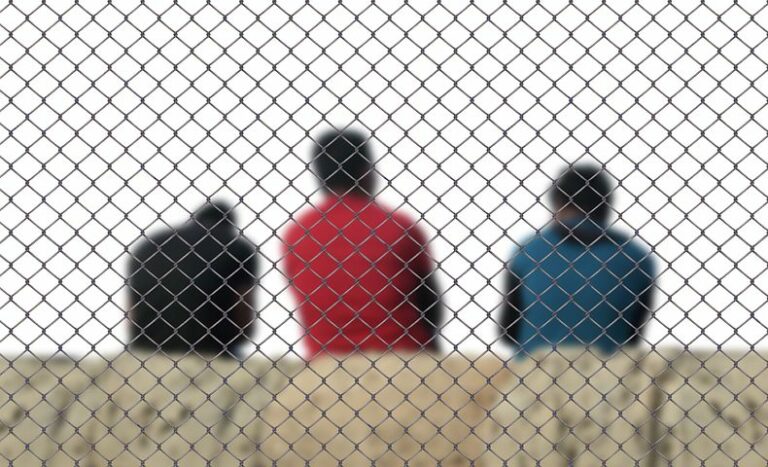Forced Migration and Transitional Justice

In 2021, in its capacity as a partner in the Global Initiative for Justice, Truth and Reconciliation (GIJTR), the Centre for Violence and Reconciliation (CSVR) facilitated a project to better understand the experiences of forced migrants as they relate to transitional justice (TJ). As part of the project, four case studies were conducted in Syria, Sudan, Bangladesh and Gambia, focusing specifically on the Mental Health and Psychosocial Support (MHPSS) needs of forced migrants in relation to TJ processes in these contexts. The following post highlights key takeaways and reflections from the studies.
Forced migration, its drivers and consequences, relate directly to the practice and application of transitional justice processes, yet national governments and international actors largely use a humanitarian approach to responding to harms experienced by forced migrants. While this may meet immediate needs, humanitarian interventions do not address the structural and contextual factors that render forced migrants vulnerable to violations before, during and post migration, which continue to shape their experiences in the event of return or resettlement. This is particularly true with regards to MHPSS needs, which is inclusive of social, psychological and psychiatric needs. Since MHPSS needs are seen as the concern of mental health practitioners, they are often isolated from TJ processes altogether, leading to the further marginalization of forced migrants in conflict areas or transitional societies. This was highlighted throughout the four case studies, where MHPSS was noted as being inadequate and not prioritised within TJ processes.
All case studies highlighted that conflict, human rights violations and abuses had an impact on forced migrants’ mental health and psychosocial wellbeing at the individual, family and community level. What was also highlighted was that access to MHPSS was scarce and in most cases became the responsibility of humanitarian aid institutions, as well as local and national NGOs. Furthermore, challenges in accessing MHPSS was noted as being linked to stigma and a lack of awareness regarding services. In the Gambian case it was stated that mental health issues were understood through cultural and religious lenses and consequently people with mental health needs are often seen as affected by supernatural forces and labelled as “crazy” and weak. These societal connotations of mental health issues were a routine deterrent to seeking help. In addition, the stigma attached to experiences of violations, especially in regard to torture and sexual and gender based violence, created further barriers to accessing support.
Normalising mental health issues was noted as important, especially in the case in Bangladesh, which highlighted that through awareness raising campaigns in camps, communities became more familiar with mental health concepts and started seeking support which contributed to a decrease in domestic violence, juvenile delinquency and mental instability.
As we think about the stigma in communities related to mental health issues, these are likely to resemble views shared within societal and governmental structures, which in turn impact the state’s willingness to invest in mental health generally, and certainly in the inclusion or exclusion of MHPSS in transitional justice processes.
Furthermore, mental health and psychosocial issues negatively impact forced migrants’ participation in TJ processes. As the Syrian case emphasised, forced migrants often must prioritize negotiating the daily challenges of displacement, leaving participation in Civil Society Organisation’s groundwork for post conflict restitution as a secondary goal. This was further echoed in the Sudan case which identified that forced migrants’ preoccupation with continuous traumatic stress factors such as getting basic needs met constrained their ability to organise around TJ.
Conflict, violence and trauma have a tremendous impact on the mental and psychosocial wellbeing of individuals, families and communities. Forced migrants experiences of death, torture, family separation, physical insecurity, loss of livelihoods, social injustices, inequality, discrimination, and lack of access to services contribute to an increased risk of mental health and psychosocial challenges. As a group, forced migrants are extremely relevant to the peacebuilding activities that transitional justice initiatives hope to promote, but their experiences often directly undermine the sense of belonging and co-ownership that are so essential to successful TJ processes.
It is important for those at the head of TJ processes to reflect on the MHPSS needs of this population and how to meet these needs within TJ mechanisms. And in process, leaders need to consider the many dimensions of wellness, including economic reform, structural reform, judicial reform, and social and psychological reform. Most often in rebuilding the focus is on economic, structural and judicial reform, with social and particularly psychological reform being anecdotal or adhoc. If we do not engage with all dimensions of societal wellness, a gap is left that has the potential to pull transitioning societies back into violence.
Thus, the integration of a MHPSS lens into all aspects and mechanisms of TJ is important, particularly when working with forced migrants. Transitional bodies must work in partnership with CSOs and informal support networks to create interventions and processes that are impactful and speak to all dimensions of societal wellness. It is also important that these investments are long term because MHPSS is crucial to building a sustainable post transitional society. As governments undertake TJ processes or peacebuilding initiatives, it is imperative that they acknowledge the psychosocial and mental health impacts on individuals and whole societies as they have the potential to undermine efforts in building a peaceful society.

Sumaiya Mohamed
Mental Health and Psychosocial Specialist at the Centre for the Study of Violence and Reconciliation
